- Home
- Warhammer 40K
Old Soldiers Never Die - Sandy Mitchell
Old Soldiers Never Die - Sandy Mitchell Read online
Warhammer 40,000
It is the 41st millennium. For more than a hundred centuries the Emperor has sat immobile on the Golden Throne of Earth. He is the master of mankind by the will of the gods, and master of a million worlds by the might of his inexhaustible armies. He is a rotting carcass writhing invisibly with power from the Dark Age of Technology. He is the Carrion Lord of the Imperium for whom a thousand souls are sacrificed every day, so that he may never truly die.
Yet even in his deathless state, the Emperor continues his eternal vigilance. Mighty battlefleets cross the daemon-infested miasma of the warp, the only route between distant stars, their way lit by the Astronomican, the psychic manifestation of the Emperor’s will. Vast armies give battle in his name on uncounted worlds. Greatest amongst His soldiers are the Adeptus Astartes, the Space Marines, bio-engineered super-warriors. Their comrades in arms are legion: the Imperial Guard and countless planetary defence forces, the ever-vigilant Inquisition and the tech-priests of the Adeptus Mechanicus to name only a few. But for all their multitudes, they are barely enough to hold off the ever-present threat from aliens, heretics, mutants—and worse.
To be a man in such times is to be one amongst untold billions. It is to live in the cruellest and most bloody regime imaginable. These are the tales of those times. Forget the power of technology and science, for so much has been forgotten, never to be re-learned. Forget the promise of progress and understanding, for in the grim dark future there is only war. There is no peace amongst the stars, only an eternity of carnage and slaughter, and the laughter of thirsting gods.
Editorial Note:
Of all the desperate situations faced by Cain, when he had no alternative but to do so, the defence of Lentonia in 938.M41 must surely be counted one of the strangest. Partly due to the nature of the foe, and partly due to the circumstances under which he found himself caught up in the events there.
Editing this portion of his memoirs has been an equally atypical undertaking, since, for much of the events he describes, he was accompanied by an unusually reliable eyewitness, whose account I have used to supplement his own observations. I have also, in the interests of presenting as rounded a picture as possible, reluctantly incorporated a little additional material from the memoirs Jenit Sulla, which present as formidable a challenge to the patience of the reader as those I’ve been forced to use hitherto, and for which I feel obliged to apologise in advance.
As ever, I have left Cain’s original account of events as close to how I found it as possible, keeping my own interpolations to a minimum, except for those I felt necessary to elucidate an obscure reference or otherwise clarify a potential ambiguity. Although, where Cain was concerned, ambiguity was often the most consistent thing about him.
Amberley Vail, Ordo Xenos
ONE
Given the number of times what was supposed to be a straightforward deployment turned out to be anything but, dropping me and the unit I was accompanying smack into the middle of a desperate struggle to survive, the knowledge that we’d arrived in the Lentonia system long after the war there had been brought to a victorious conclusion was a welcome change of pace. It wouldn’t have done to let my natural inclination to do handsprings and shout ‘Huzzah!’ show visibly, however, as I was popularly supposed to be the kind of idiot who’d relish the chance to put himself in harm’s way in the name of the Golden Throne, so I settled on a vaguely rueful air, as though disappointed at our good fortune. Not that I was exactly relishing the prospect of the next few weeks, which promised little beyond unrelieved tedium and finger food, but compared to the kind of excitement I was used to, I’d take boredom over bowel-clenching terror every time.
Especially as I’d only just made it up the boarding ramp of the last ship out at embarkation, the swarm of tyranids on our tail almost filling the horizon.
“I’m sure there are still a few pockets of resistance to mop up,” I said, privately resolving to discover where they were and make sure I avoided them.
“Of course,” Colonel Kasteen said, running a finger around the collar of her dress uniform in the manner of someone suppressing the desire to unfasten it. Like most ice-worlders, she preferred shirtsleeves for the most part, reserving the heavy greatcoats generally associated with Valhallan regiments for environments they were fitted to, and had chosen summer kit for the occasion; although the weather in the planetary capital seemed distinctly autumnal if you asked me. Dark grey clouds were scudding across a light grey sky mottled with flecks of blue, and the scent of recent rain had been the first thing to greet my nostrils as the boarding ramp of our shuttle extruded itself to lick the still-damp rockcrete of the pad, as if tentatively quenching its thirst.
In the distance, across the wide expanse of the landing field, columns of steam marked the points where the rest of our heavy shuttles had grounded; the commandeered freighter we’d arrived on didn’t have nearly enough of its own to disembark an entire regiment, of course, but by this time the local traffic controllers had acquired sufficient experience of offloading large bodies of troops and their equipment to divert a veritable swarm of them to pick us up almost as soon as we’d reached orbit, and I’d made sure I was among the first wave to hit the ground. Something I always tried to do when the likelihood of meeting significant resistance was low, as it consolidated my undeserved reputation for leading from the front, and gave me a head start in finding the most comfortable quarters wherever we were due to be billeted. “I imagine the regiments already here will be happy to catch their breath while we dot the ‘i’s and cross the ‘t’s. Who are they, anyway?”
“Vostroyans, mostly,” I said, glancing at the data-slate my aide had just handed to me. Jurgen had tidied himself up too, insofar as that was possible, centering his helmet on his head[1] , and brushing most of the accumulated detritus from the ragged clumps of facial hair which more or less assembled themselves into a scurf-flecked beard. Despite these heroic efforts he seemed to have stopped some way short of actual ablutions, however, and I found myself falling into my usual habit of edging upwind of him as I spoke. “Three line regiments and an armour group. Plus the Tallarn 236th, who got here a couple of weeks ahead of the others, after being diverted on their way back to Coronus for reassignment. And a Valhallan unit for fire support.” I don’t mind admitting my voice took on a tinge of surprise at this point. “The 12th Field Artillery.” The regiment I’d begun my long and inglorious career with, some twenty years before.
“Haven’t seen them since Gravalax,” Kasteen said, although whether she was pleased at the prospect of renewing the acquaintance or not was hard to tell, since she was fighting off another attempt at strangulation by her shirt collar at the time.
“We’ve all come a long way since then,” I said, and the colonel nodded thoughtfully.
“Thanks to you,” she replied. “If you hadn’t joined us when you did, we wouldn’t have lasted another week, never mind seven years up at the sharp end[2] .”
“Any other commissar would have done the same,” I said, feeling unaccountably embarrassed for a moment, although I suppose many of my colleagues would have gone about the job in a rather more brutally straightforward manner. (And probably ended up on the wrong end of a friendly fire accident too, which is what tends to happen when you incur the displeasure of a large number of people with guns.) Kasteen looked as though she was about to take issue with that, but before she got the chance, Jurgen broke into the conversation with a phlegm-laden attempt at a tactful cough.
“I think that’s your escort, sir.” He sounded vaguely affronted at the notion, as if it somehow cast doubt on his own ability to ensure our safe
ty, although, since the wretched planet was supposed to be pacified by this point, the matter was purely one of protocol in any case.
“I think you’re right,” I agreed, as the small knot of vehicles drew closer. A ground car, too large, black and shiny to be military issue, was flanked by a couple of outriders on motorcycles, the pennons flying from poles affixed to the riders’ backs echoing the design of the smaller ones fluttering around the limousine. I didn’t recognise the heraldry, but it seemed to involve a great deal of gold thread, entangling an Imperial aquila like vines clambering up a wall. “Look more like Arbites[3] than soldiers.”
“Governor’s household troops, sir,” Jurgen said, consulting the uniform guide in his data-slate, something I suppose I should have done myself before now; but in all fairness, I was familiar enough with those of the other Guard regiments among our task force, and the Lentonian militia were all either dead or confined to barracks, pending the purge of any who might have supported the wrong side in the recent insurrection. Anyone else in a uniform or carrying a gun would be fair game, or best avoided, depending on our relative numbers and firepower.
“I thought they’d shot him,” I said.
“That was the old one,” Kasteen said, a note of doubt entering her voice. Usually we had Major Broklaw to fill us in on these niggling little details, which he dutifully filleted from the brain-numbing morass of the Munitorum briefing materials, so the colonel and I didn’t have to wade through them ourselves. But Broklaw was still in orbit, waiting for the last shuttle down, to ensure our deployment went as smoothly as these things ever did[4] . “I heard they found a nephew or something to take over.”
“Good for them,” I said, hoping he’d make a better fist of it than the last incumbent, who’d managed to rouse a placid and Emperor-fearing population to armed rebellion with almost indecent haste following his appointment. Truth to tell, I was still somewhat vague about the exact nature of their grievances, but if the erstwhile governor ran true to form it probably had something to do with treating the tithing revenues as his personal cash box, and taking an excessive interest in other people’s wives, husbands, or farm animals[5] . All in all, Lentonia was probably better off without him; but letting the plebs get away with taking decisions like that for themselves would only lead to worse trouble later on, so, as usual, the Guard had been called in to restore order, and visit retribution on whoever it seemed most expedient to blame. And, of course, the local Chaos cults had all crawled out of the woodwork to join in the fun, although, if anything, they’d probably helped in the long run, providing a handy foe the Lentonians could feel good about uniting against, whatever their own differences.
While we’d been mulling matters over, the car and its escort had pulled up at the foot of the boarding ramp, and the three of us walked down to meet it. The outriders saluted with simultaneous precision, the polarised visors of their helmets melding almost seamlessly with the glossy black body armour which encased them, and I found myself suppressing a sudden flare of unease as I returned the gesture with my best parade ground snap: it was like acknowledging a couple of chunks of animate shadow. The slighter of the two—whose build led me to suspect the presence of a woman inside the protective carapace, although without sight of the face behind the blank reflective plate it was hard to be sure—dismounted, revealing a holstered hellpistol at her waist, no doubt meant to supplement the carbine stowed just forward of the saddle and whatever lethal surprises had been installed on the bike itself. She (for the sake of argument) took a step towards the car, reaching out a hand, but before she could open the passenger door for us it popped from the inside, shoved hard by a young man with a shock of blond hair and a wide, welcoming grin.
“It’s all right, Klarys, I’ve got it,” he said, sliding across the wide seat to make room for us. The anonymous trooper turned away, her body language making her affront at the breach of protocol perfectly plain in spite of her concealed visage; sentiments I was certain Jurgen shared. The young man stuck out a hand to shake. “Jonas Worden, Planetary Governor. Call me Jona. I’ve had a lifetime’s worth of ‘Your excellency’ gash in the last few weeks.”
Kasteen and I took in his worn groxhide jacket and utility cloth trousers, and looked at one another dubiously. He didn’t look like any of the Emperor’s anointed I’d ever met.
“Ciaphas Cain,” I said, concealing my bewilderment with the ease of a lifetime of practice, and taking the proffered hand, making sure not to exert the full strength of my augmetic fingers. “No nickname, I’m afraid. But in my profession you tend not to make friends.”
“Really?” The young man looked faintly surprised, then grinned, as if realising I was pulling his leg. “There’s a Valhallan officer calls you Cai. Sounds like a nickname to me.”
“That would be Toren,” I said, before glancing back at Kasteen, who was being helped onto the overstuffed bench seat by the same proffered hand. “You remember Major Divas?” No one else I could think of ever used the familiar form of my given name, which was just as well, as I detested it; something Divas never quite managed to grasp, in spite of innumerable hints over the years.
“Of course,” Kasteen said, while I settled into the seat opposite her and the young man, and wondered which of the polished wooden cabinets mounted on the walls concealed a decanter. “A fine officer.” She grinned at me, clearly enjoying my discomfiture.
“You don’t look much like a governor,” I said, deciding to play the bluff man of action card. That usually went down well with civilians who thought they knew what sort of man I was, and I intended to use the technique a lot in the next few weeks; I still wasn’t exactly overjoyed about being dragged into a political junket, and was damned if I was going to be any more gracious about it than I had to be.
“I don’t feel like one either,” Jona said, with disarming candour, and I found myself in some danger of liking him. “I used to glean news for the Light of Truth[6] , till some dungwit dragged me off to the palace.”
“It can’t have been that much of a surprise,” I said. “If you were next in line...”
Jona laughed. “Nowhere near it. My mother turned her back on the whole festering lot of ’em thirty years ago. Wouldn’t have been here if she hadn’t.”
“I see,” I said, although I didn’t, quite. “There was still some bad feeling among the rest of the family, I take it.”
“There surely is now.” He grinned. “Why do you think the Martial Law Council stuck me with the job?”
“At a guess, because you’re the only member of the family who didn’t want it,” I said, and he nodded.
“They were fighting over the throne like rats in a sack. I did some good pieces on it.” He started to pull out a battered data-slate, then thought better of it, no doubt correctly divining that they wouldn’t mean much to us anyway. “Power-broking, character assassination—a couple didn’t stop at character either. Sold a lot of sheets.” Then he sighed, the animation which had come over him slipping away again, and waved a disgusted-looking hand at our luxurious surroundings. “Now this. Your council’s got a poor sense of humour.”
But a strong grasp of the practical, I thought. In my experience, the only people it’s safe to have in a position of power are the ones who don’t want to be there in the first place. Before I could say anything to that effect, however, my aide’s shadow filled the doorway, and his bouquet flowed out ahead of him to fill the car. Jona recoiled.
“Jurgen,” I said diplomatically, “would you mind following us in the Salamander? I’m sure his ex—our host has enough to do without seeing us to our quarters when the meeting’s over.”
“It’s no trouble,” the young man said, in the reflexively polite way of someone who knows you know they don’t mean it, still too stunned at Jurgen’s appearance to take umbrage at my near use of the term he detested. As the door slammed, following Jurgen’s “Very good, sir,” and something resembling a salute, he shook himself as though rousing from a
stupor. “What was that?”
“My aide,” I said, feeling no further explanation to be warranted. “Shouldn’t we be going?”
“I suppose so,” Jona agreed. “Don’t you want to wait for him to unload your transport?”
“He’ll catch up,” Kasteen assured him, knowing Jurgen’s robust attitude to anything with an engine, and clearly wondering how best to avoid the journey home.
“If you’re sure.” The governor touched a vox control. “Back to the gas factory, Fossel.” He must have caught the questioning look between Kasteen and myself, because he added “the Concilium[7] ” for our benefit. The chauffeur, invisible behind a panel of one-way armourglass, rolled us smoothly into motion.
Comfortable as the ride was, especially compared to being driven by Jurgen, and in spite of our host’s attempts to while away the journey with polite conversation about my upcoming itinerary, I found it impossible to relax and enjoy our luxurious surroundings. Aside from the young man’s manifest eccentricity, meeting Imperial Guard officers from the starport in person hardly being the kind of thing planetary governors usually did, I was uncomfortably aware that his previous profession made him a shrewd judge of people, and more likely than most to see through the facade I generally presented to the galaxy. In addition to which, I’d been in enough vehicles like this to be well aware of what a tempting target they made. There were still malcontents on the loose, by Jona’s own admission, and even if they had no idea of who was inside the big shiny car, it was clearly someone of wealth and influence. Protecting it with no more than a pair of outriders was tantamount to towing a sign saying ‘Assassinate Me!’ so far as I could see; in fact I’d been the target of just such an attempt myself on Pererimunda, although, to be fair, on that occasion I’d been the unfortunate victim of a case of mistaken identity[8] .

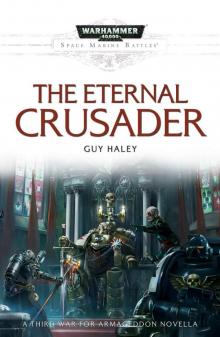 The Eternal Crusader - Guy Haley
The Eternal Crusader - Guy Haley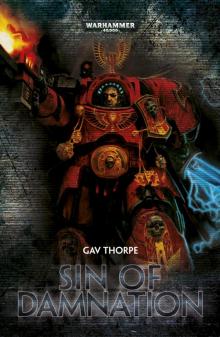 Sin of Damnation - Gav Thorpe
Sin of Damnation - Gav Thorpe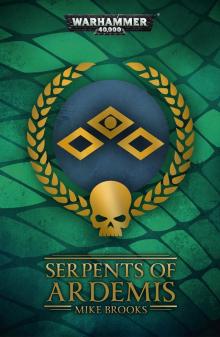 Serpents of Ardemis - Mike Brooks
Serpents of Ardemis - Mike Brooks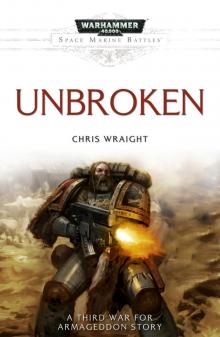 Unbroken - Chris Wraight
Unbroken - Chris Wraight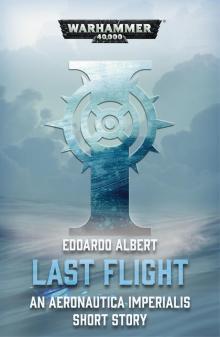 Last Flight - Edoardo Albert
Last Flight - Edoardo Albert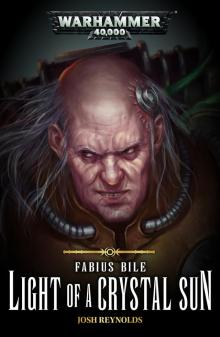 Light of a Crystal Sun - Josh Reynolds
Light of a Crystal Sun - Josh Reynolds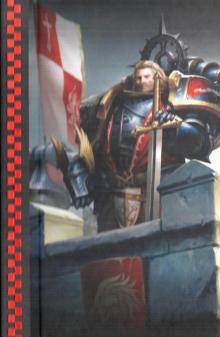 Lion El'Jonson- Lord of the First - David Guymer
Lion El'Jonson- Lord of the First - David Guymer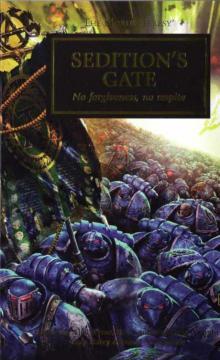 Sedition's Gate - Nick Kyme & Chris Wraight
Sedition's Gate - Nick Kyme & Chris Wraight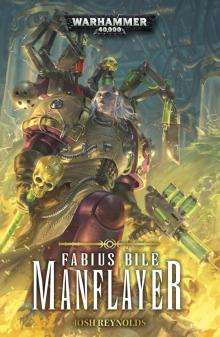 Manflayer - Josh Reynolds
Manflayer - Josh Reynolds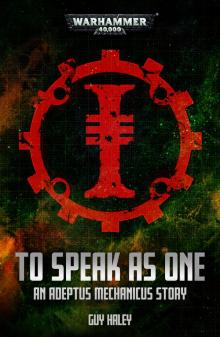 To Speak as One - Guy Haley
To Speak as One - Guy Haley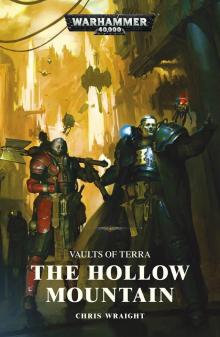 Vaults of Terra- The Hollow Mountain - Chris Wraight
Vaults of Terra- The Hollow Mountain - Chris Wraight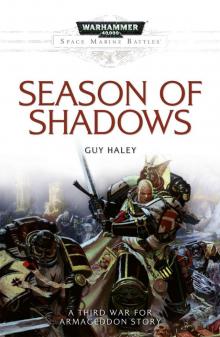 Season of Shadows - Guy Haley
Season of Shadows - Guy Haley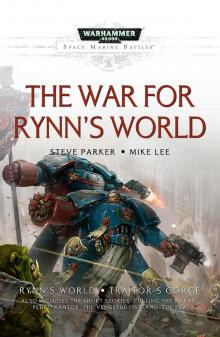 The War for Rynn's World - Steve Parker & Mike Lee
The War for Rynn's World - Steve Parker & Mike Lee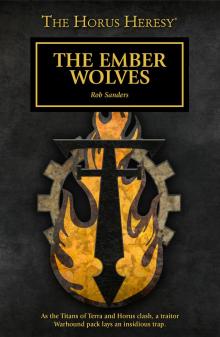 The Ember Wolves - Rob Sanders
The Ember Wolves - Rob Sanders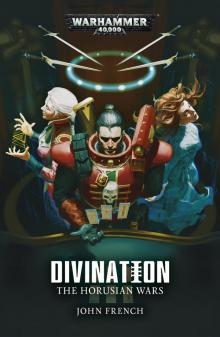 Divination - John French
Divination - John French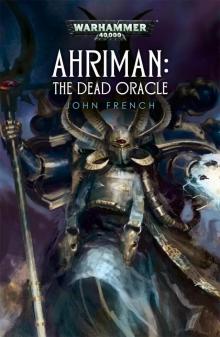 The Dead Oracle - John French
The Dead Oracle - John French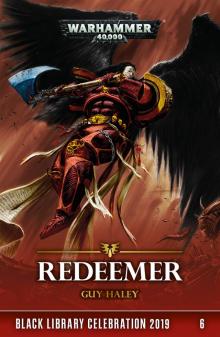 Redeemer - Guy Haley
Redeemer - Guy Haley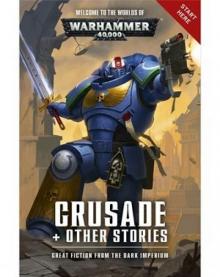 Crusade & Other Stories - Dan Abnett Et Al.
Crusade & Other Stories - Dan Abnett Et Al.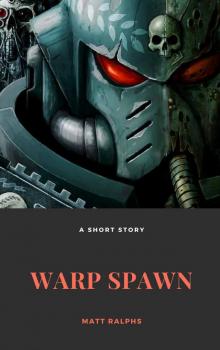 Warp Spawn - Matt Ralphs
Warp Spawn - Matt Ralphs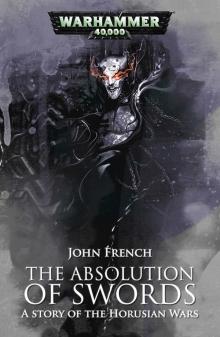 The Absolution of Swords - John French
The Absolution of Swords - John French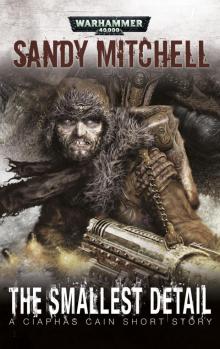 The Smallest Detail - Sandy Mitchell
The Smallest Detail - Sandy Mitchell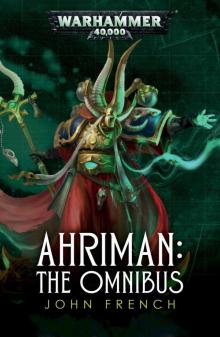 The Omnibus - John French
The Omnibus - John French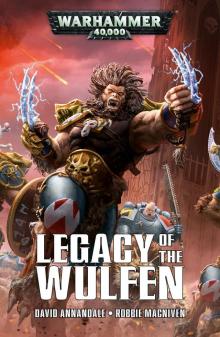 Legacy of the Wulfen - David Annandale & Robbie MacNiven
Legacy of the Wulfen - David Annandale & Robbie MacNiven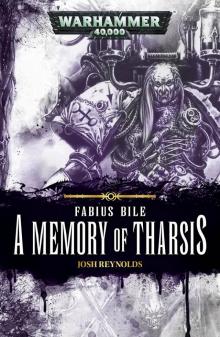 A Memory of Tharsis - Josh Reynolds
A Memory of Tharsis - Josh Reynolds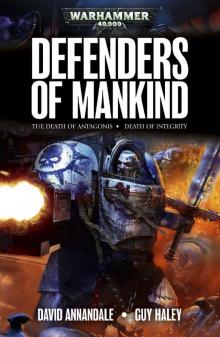 Defenders of Mankind - David Annandale & Guy Haley
Defenders of Mankind - David Annandale & Guy Haley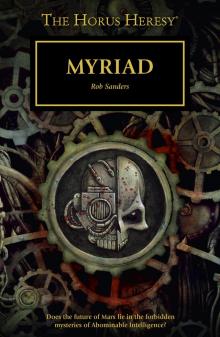 Myriad - Rob Sanders
Myriad - Rob Sanders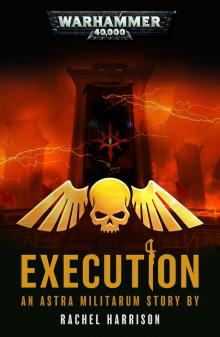 Execution - Rachel Harrison
Execution - Rachel Harrison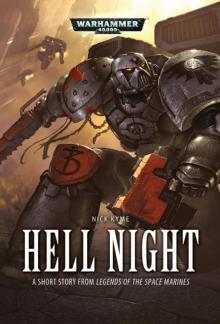 Hell Night - Nick Kyme
Hell Night - Nick Kyme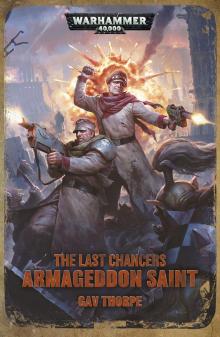 Armageddon Saint - Gav Thorpe
Armageddon Saint - Gav Thorpe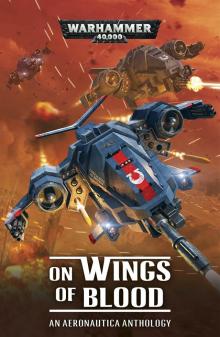 On Wings of Blood
On Wings of Blood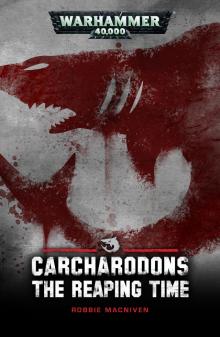 The Reaping Time - Robbie MacNiven
The Reaping Time - Robbie MacNiven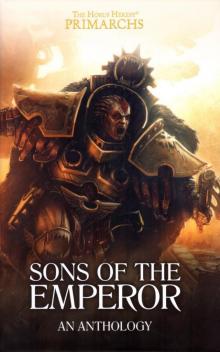 Sons of the Emperor
Sons of the Emperor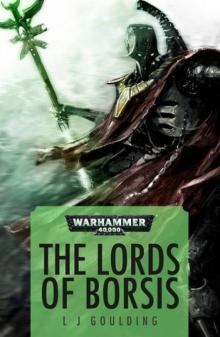 The Lords of Borsis - L J Goulding
The Lords of Borsis - L J Goulding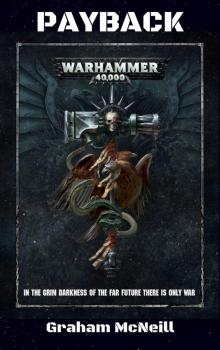 Payback - Graham McNeill
Payback - Graham McNeill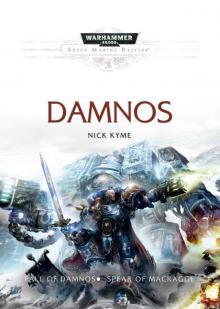 Damnos - Nick Kyme
Damnos - Nick Kyme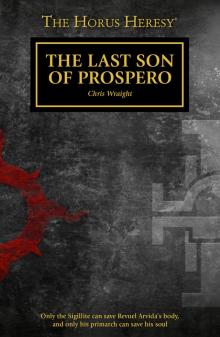 The Last Son of Prospero - Chris Wraight
The Last Son of Prospero - Chris Wraight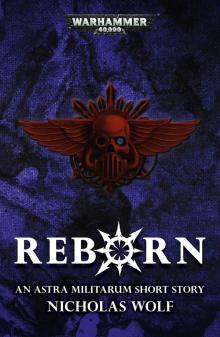 Reborn - Nicholas Wolf
Reborn - Nicholas Wolf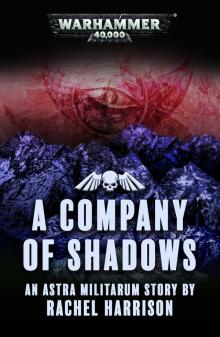 A Company of Shadows - Rachel Harrison
A Company of Shadows - Rachel Harrison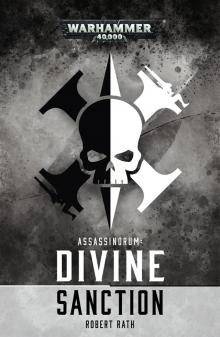 Assassinorum- Divine Sanction - Robert Rath
Assassinorum- Divine Sanction - Robert Rath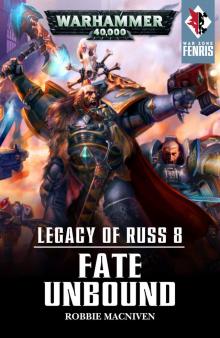 Fate Unbound - Robbie MacNiven
Fate Unbound - Robbie MacNiven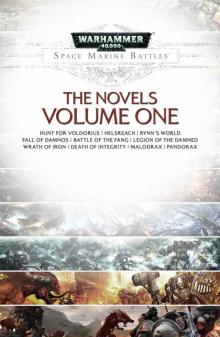 Space Marine Battles - the Novels Volume 1
Space Marine Battles - the Novels Volume 1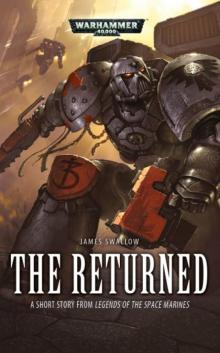 The Returned - James Swallow
The Returned - James Swallow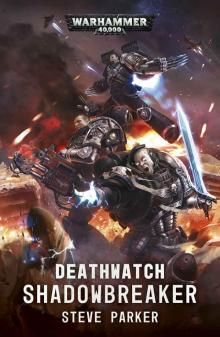 Shadowbreaker - Steve Parker
Shadowbreaker - Steve Parker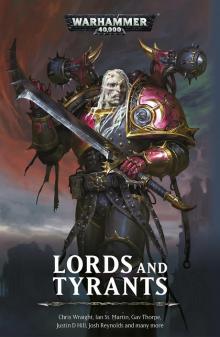 Lords and Tyrants
Lords and Tyrants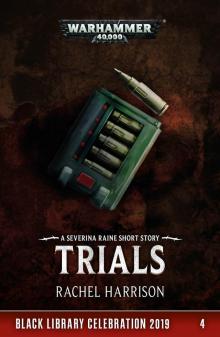 Trials - Rachel Harrison
Trials - Rachel Harrison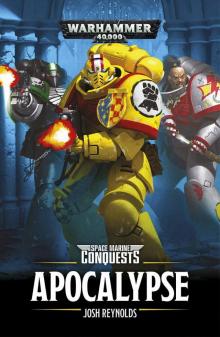 Apocalypse - Josh Reynolds
Apocalypse - Josh Reynolds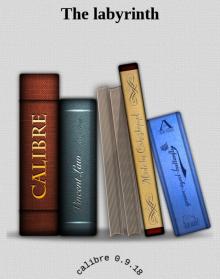 The labyrinth - Richard Ford
The labyrinth - Richard Ford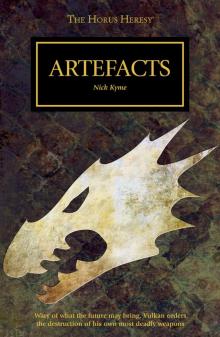 Artefacts - Nick Kyme
Artefacts - Nick Kyme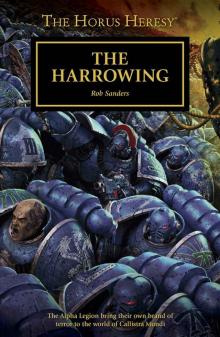 The Harrowing - Rob Sanders
The Harrowing - Rob Sanders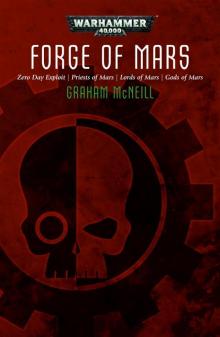 Forge of Mars - Graham McNeill
Forge of Mars - Graham McNeill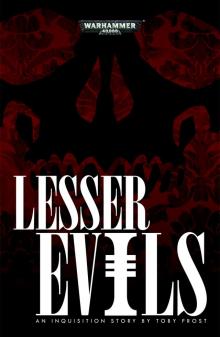 Lesser Evils - Toby Frost
Lesser Evils - Toby Frost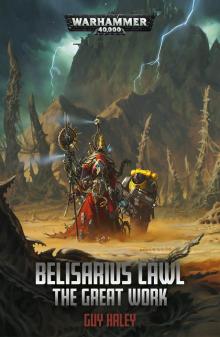 Belisarius Cawl- the Great Work - Guy Haley
Belisarius Cawl- the Great Work - Guy Haley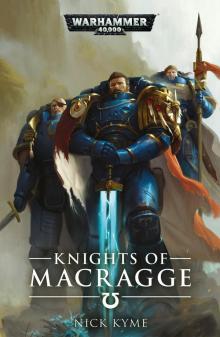 Knights of Macragge - Nick Kyme
Knights of Macragge - Nick Kyme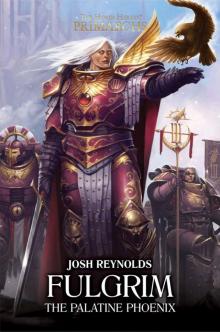 Fulgrim- The Palatine Phoenix - Josh Reynolds
Fulgrim- The Palatine Phoenix - Josh Reynolds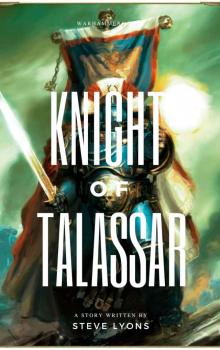 Knight of Talassar - Steve Lyons
Knight of Talassar - Steve Lyons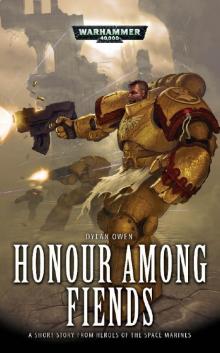 Honour Among Fiends - Dylan Owen
Honour Among Fiends - Dylan Owen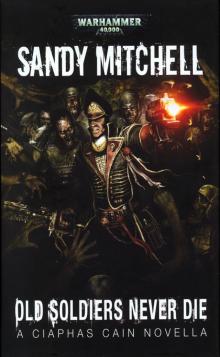 Old Soldiers Never Die - Sandy Mitchell
Old Soldiers Never Die - Sandy Mitchell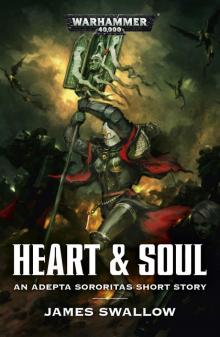 Heart & Soul - James Swallow
Heart & Soul - James Swallow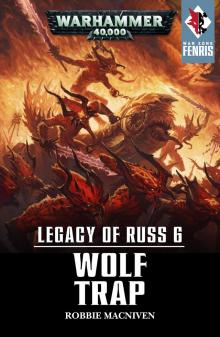 Wolf Trap - Robbie MacNiven
Wolf Trap - Robbie MacNiven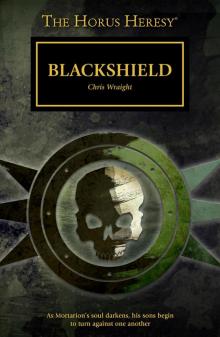 Blackshield - Chris Wraight
Blackshield - Chris Wraight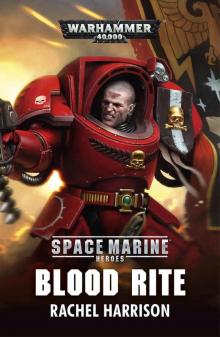 Blood Rite - Rachel Harrison
Blood Rite - Rachel Harrison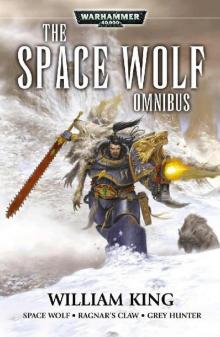 The Space Wolf Omnibus - William King
The Space Wolf Omnibus - William King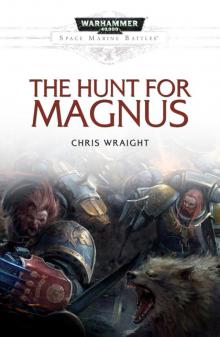 The Hunt for Magnus - Chris Wraight
The Hunt for Magnus - Chris Wraight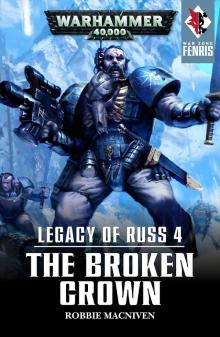 The Broken Crown - Robbie MacNiven
The Broken Crown - Robbie MacNiven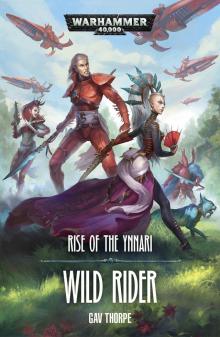 Wild Rider - Gav Thorpe
Wild Rider - Gav Thorpe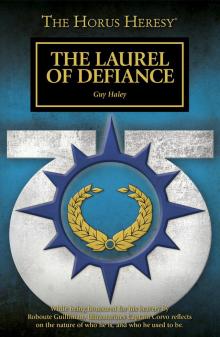 The Laurel of Defiance - Guy Haley
The Laurel of Defiance - Guy Haley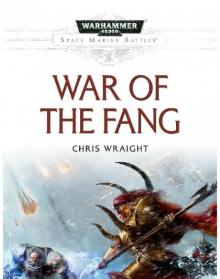 War of the Fang - Chris Wraight
War of the Fang - Chris Wraight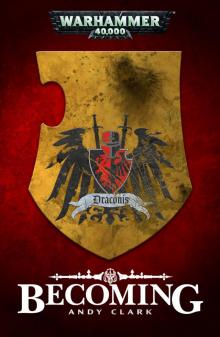 Becoming - Andy Clark
Becoming - Andy Clark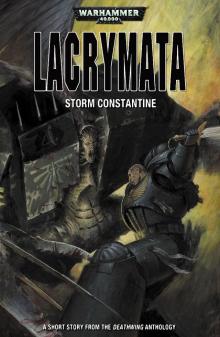 Lacrymata - Storm Constantine
Lacrymata - Storm Constantine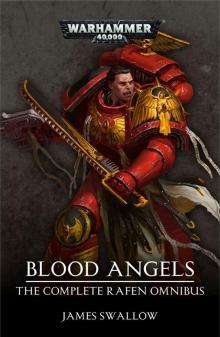 Blood Angels - The Complete Rafen Omnibus - James Swallow
Blood Angels - The Complete Rafen Omnibus - James Swallow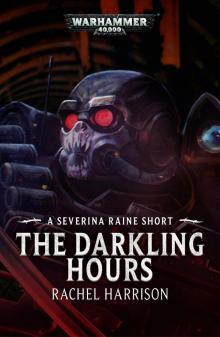 The Darkling Hours - Rachel Harrison
The Darkling Hours - Rachel Harrison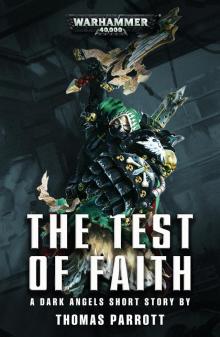 The Test of Faith - Thomas Parrott
The Test of Faith - Thomas Parrott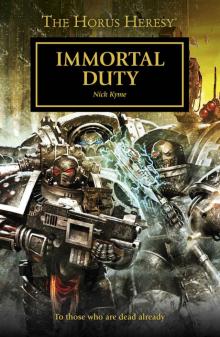 Immortal Duty - Nick Kyme
Immortal Duty - Nick Kyme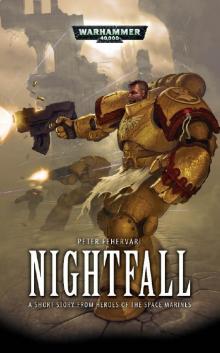 Nightfall - Peter Fehervari
Nightfall - Peter Fehervari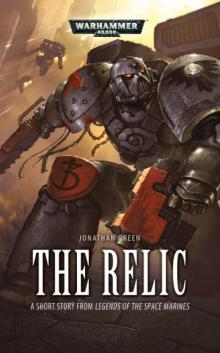 The Relic - Jonathan Green
The Relic - Jonathan Green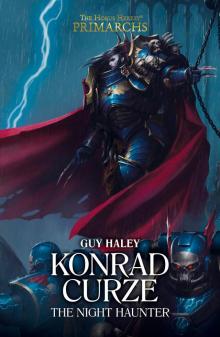 Konrad Curze the Night Haunter - Guy Haley
Konrad Curze the Night Haunter - Guy Haley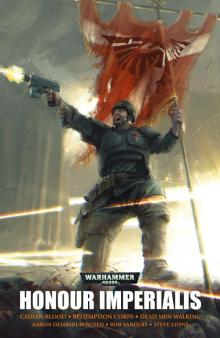 Honour Imperialis - Aaron Dembski-Bowden
Honour Imperialis - Aaron Dembski-Bowden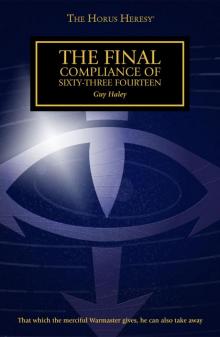 The Final Compliance of Sixty-Three Fourteen - Guy Haley
The Final Compliance of Sixty-Three Fourteen - Guy Haley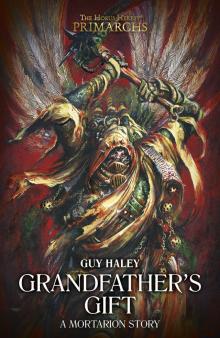 Grandfather’s Gift - Guy Haley
Grandfather’s Gift - Guy Haley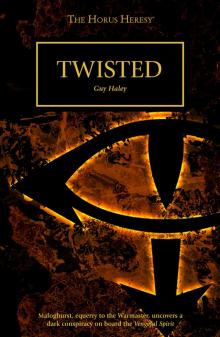 Twisted - Guy Haley
Twisted - Guy Haley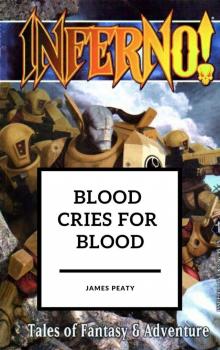 Blood Cries for Blood - James Peaty
Blood Cries for Blood - James Peaty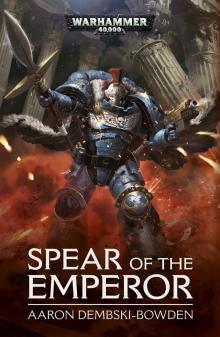 Spear of the Emperor - Aaron Dembski-Bowden
Spear of the Emperor - Aaron Dembski-Bowden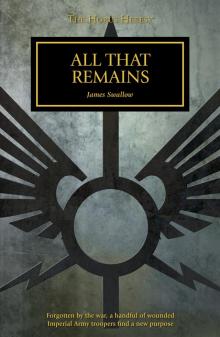 All That Remains - James Swallow
All That Remains - James Swallow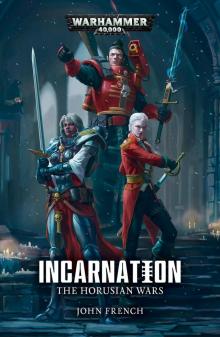 Incarnation - John French
Incarnation - John French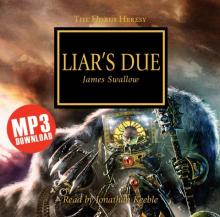 Liar's Due - Ben Swallow
Liar's Due - Ben Swallow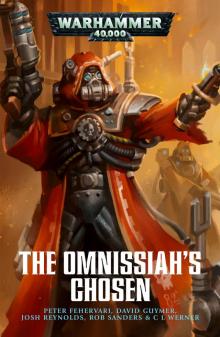 The Omnissiah's Chosen - Peter Fehervari
The Omnissiah's Chosen - Peter Fehervari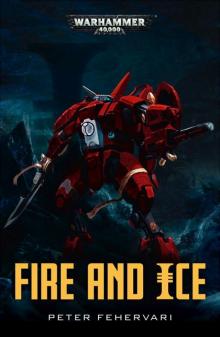 Fire and Ice - Peter Fehervari
Fire and Ice - Peter Fehervari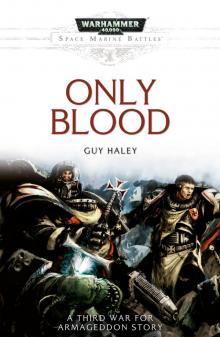 Only Blood - Guy Haley
Only Blood - Guy Haley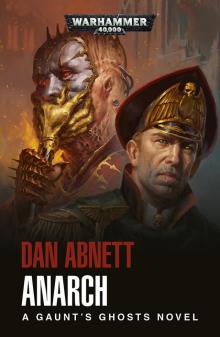 Anarch - Dan Abnett
Anarch - Dan Abnett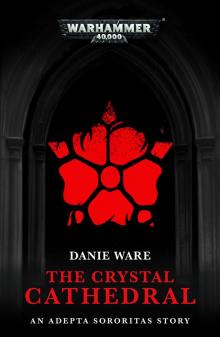 The Crystal Cathedral - Danie Ware
The Crystal Cathedral - Danie Ware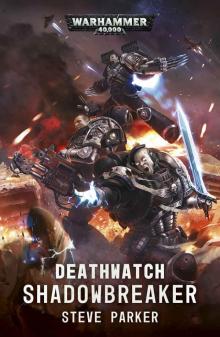 Shadowbreaker
Shadowbreaker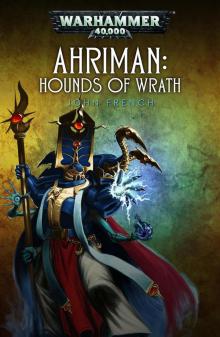 Hounds of Wrath - John French
Hounds of Wrath - John French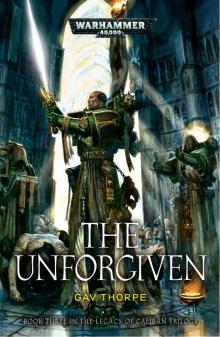 The Unforgiven - Gav Thorpe
The Unforgiven - Gav Thorpe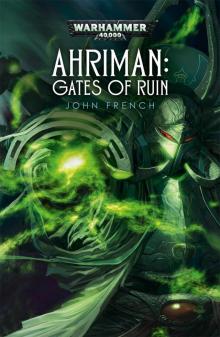 Gates of Ruin - John French
Gates of Ruin - John French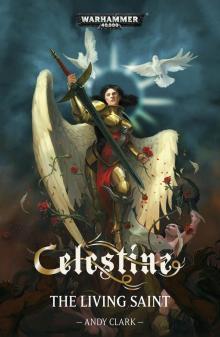 Celestine - Andy Clark
Celestine - Andy Clark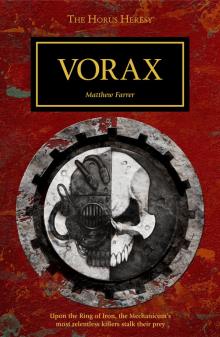 Vorax - Matthew Farrer
Vorax - Matthew Farrer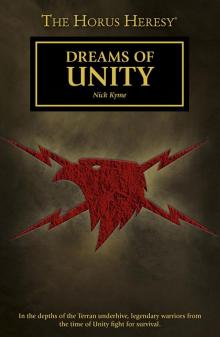 Dreams of Unity - Nick Kyme
Dreams of Unity - Nick Kyme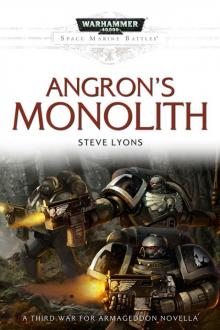 Angron's Monolith - Steve Lyons
Angron's Monolith - Steve Lyons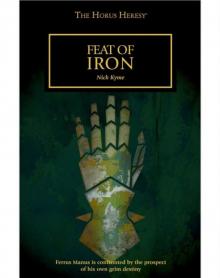 Feat of Iron - Nick Kyme
Feat of Iron - Nick Kyme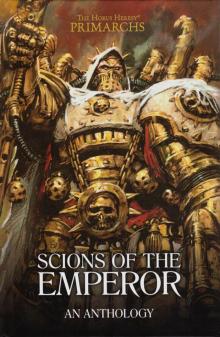 Scions of the Emperor
Scions of the Emperor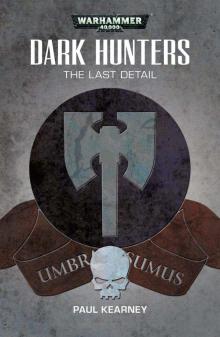 The Last Detail - Paul Kearney
The Last Detail - Paul Kearney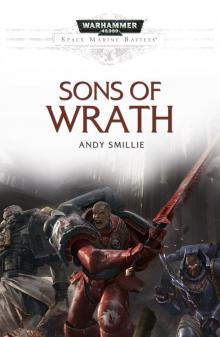 Sons of Wrath - Andy Smillie
Sons of Wrath - Andy Smillie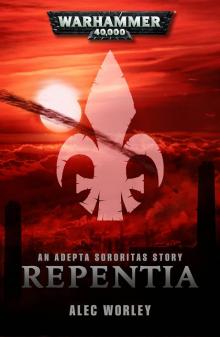 Repentia - Alec Worley
Repentia - Alec Worley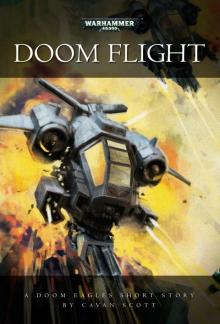 Doom Flight - Cavan Scott
Doom Flight - Cavan Scott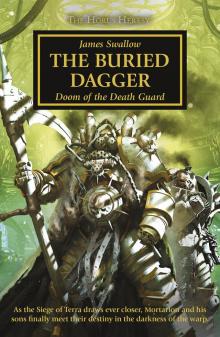 The Buried Dagger - James Swallow
The Buried Dagger - James Swallow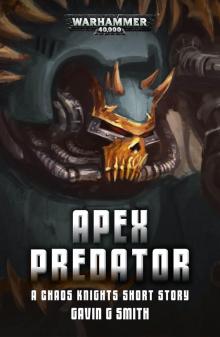 Apex Predator - Gavin G Smith
Apex Predator - Gavin G Smith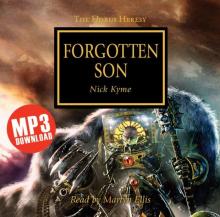 Forgotten Sons - Nick Kyme
Forgotten Sons - Nick Kyme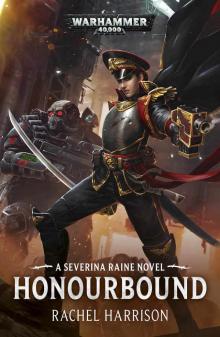 Honourbound - Rachel Harrison
Honourbound - Rachel Harrison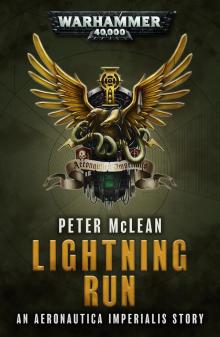 Lightning Run - Peter McLean
Lightning Run - Peter McLean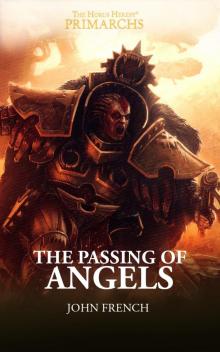 The Passing of Angels - John French
The Passing of Angels - John French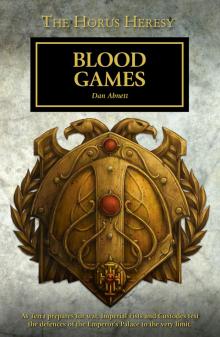 Blood Games - Dan Abnett
Blood Games - Dan Abnett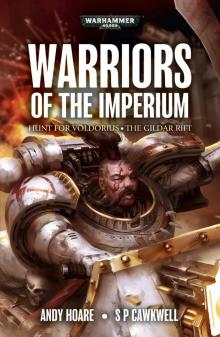 Warriors of the Imperium - Andy Hoare & S P Cawkwell
Warriors of the Imperium - Andy Hoare & S P Cawkwell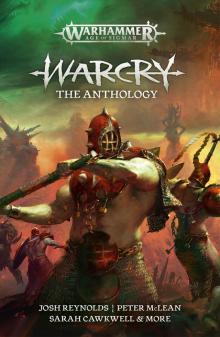 Warcry
Warcry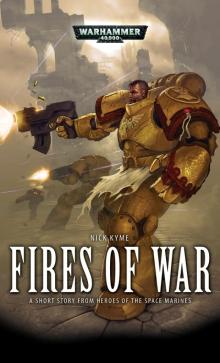 Fires of War - Nick Kyme
Fires of War - Nick Kyme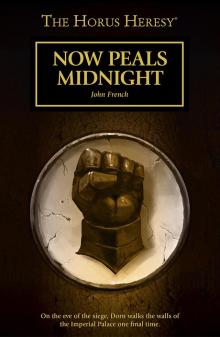 Now Peals Midnight - John French
Now Peals Midnight - John French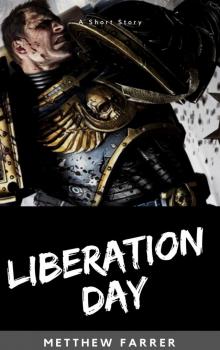 Liberation Day - Matthew Farrer
Liberation Day - Matthew Farrer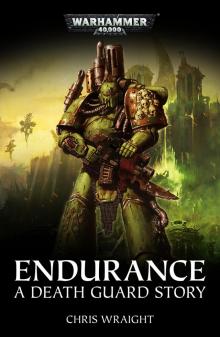 Endurance - Chris Wraight
Endurance - Chris Wraight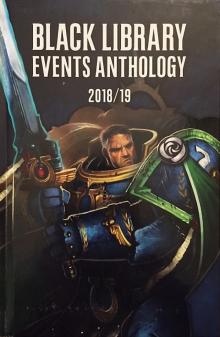 Black Library Events Anthology 2018-19
Black Library Events Anthology 2018-19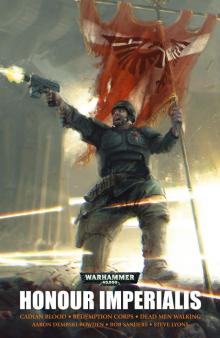 Honour Imperialis - Braden Campbell & Aaron Dembski-Bowden & Chris Dows & Steve Lyons & Rob Sanders
Honour Imperialis - Braden Campbell & Aaron Dembski-Bowden & Chris Dows & Steve Lyons & Rob Sanders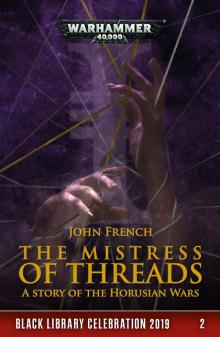 The Mistress of Threads - John French
The Mistress of Threads - John French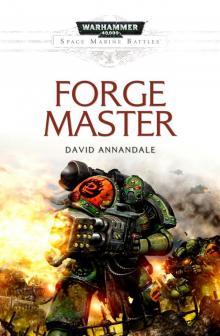 Forge Master - David Annandale
Forge Master - David Annandale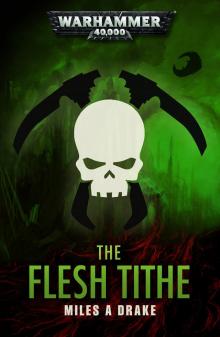 The Flesh Tithe - Miles A Drake
The Flesh Tithe - Miles A Drake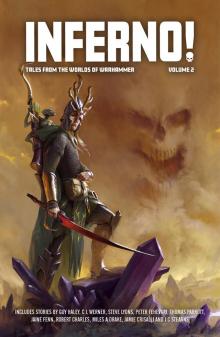 Inferno Volume 2 - Guy Haley
Inferno Volume 2 - Guy Haley Mercy of the Dragon - Nick Kyme
Mercy of the Dragon - Nick Kyme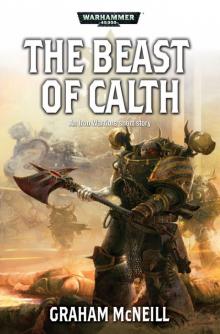 The Beast of Calth - Graham McNeill
The Beast of Calth - Graham McNeill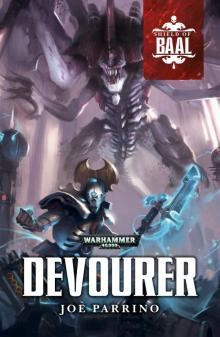 Devourer - Joe Parrino
Devourer - Joe Parrino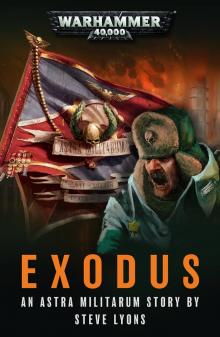 Exodus - Steve Lyons
Exodus - Steve Lyons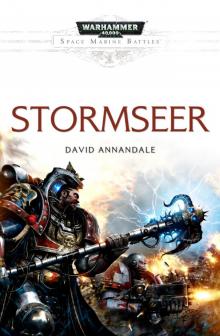 Stormseer - David Annandale
Stormseer - David Annandale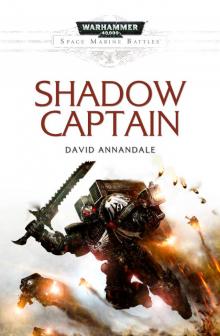 Shadow Captain - David Annandale
Shadow Captain - David Annandale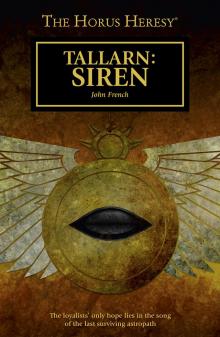 Tallarn- Siren - John French
Tallarn- Siren - John French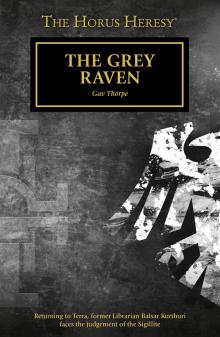 The Grey Raven - Gav Thorpe
The Grey Raven - Gav Thorpe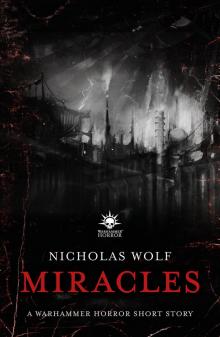 Miracles - Nicholas Wolf
Miracles - Nicholas Wolf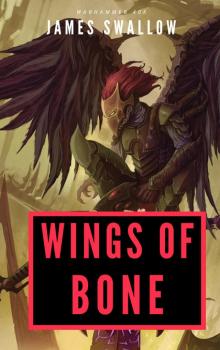 Wings of Bone - James Swallow
Wings of Bone - James Swallow